The best Game of Thrones seasons, ranked
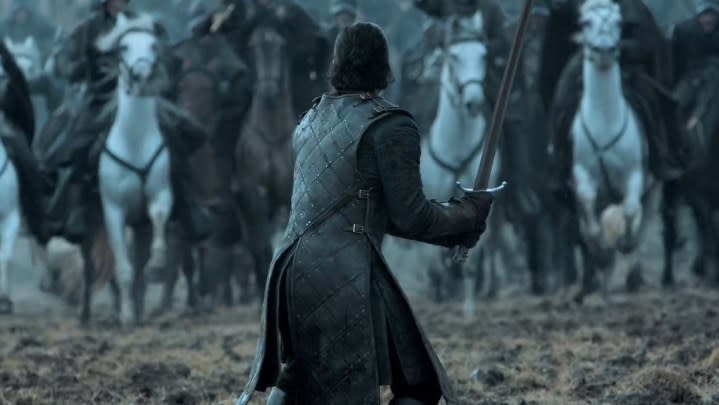
HBO has multiple incredible shows. After all, as the cable network’s slogan goes, it’s not television, it’s HBO. However, few of the network’s originals can compare to the juggernaut that was Game of Thrones. Developed by David Benioff and D. B. Weiss and based on George R. R. Martin’s literary saga A Song of Ice and Fire, the show followed multiple feuding noble families struggling to sit on the Iron Throne and rule over the war-torn continent of Westeros.
At its peak, Game of Thrones was the biggest show on Earth, dominating award shows and scoring HBO the biggest ratings in its history. Across eight seasons and 73 episodes, the show shocked, scandalized, and thrilled audiences worldwide, cementing its place among television’s greatest achievements. However, even its most devoted fans can’t say it remained consistent throughout. Indeed, while some seasons were positively masterful, others were outright embarrassing, proving that when you play the game of thrones, there truly is no middle ground.
8. Season 8 (2019)
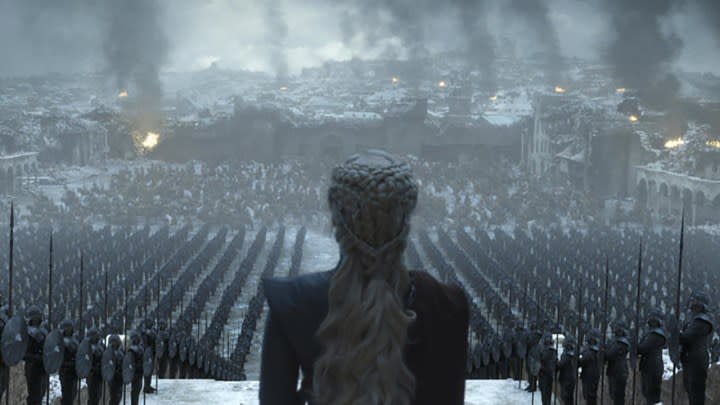
There’s not much to say that hasn’t already been said about Game of Thrones season 8. To describe it, only one word is necessary: terrible. From the awful, rushed writing to the notoriously dark cinematography to the poor production values and careless staging, Game of Thrones season 8 is a trainwreck of spectacular proportions.
If it weren’t for the incredible acting — thank R’hllor for Emilia Clarke — it would have no redeemable qualities. Don’t let the many subsequent think pieces fool you: it’s not good, it hasn’t aged well, and it’s still inexcusable. It’s terrible in just about every way that matters.
7. Season 7 (2017)
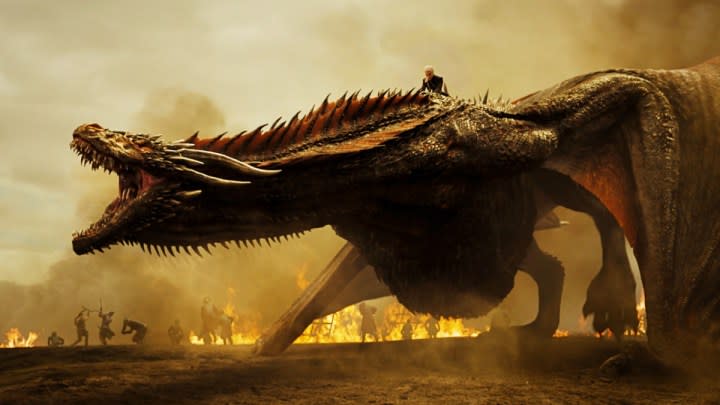
Season 7 is not much better than season 8. Following season 6’s spectacular ending, season 7 picks up with Daenerys arriving at Dragonstone, Cersei sitting on the Iron Throne, Sansa and Jon ruling the North, and Arya making her way to King’s Landing. In an effort to reduce the cast’s size, numerous characters make stupid mistakes and die in incredibly unsatisfying ways.
The biggest issue with season 7 is that you can feel the urgency to wrap the show as fast as possible. Characters stop making intelligent decisions, and the show starts disrespecting its in-world logic. Daenerys loses all her allies and two of her dragons because, otherwise, the show would be over in the blink of an eye. Meanwhile, Varys, Littlefinger, and Tyrion, arguably Game of Thrones‘ most powerful and intelligent characters, become shadows of their former selves, doomed to always be one step behind everyone else. Season 7 is poorly written and even more poorly paced, resulting in a rushed and uneven viewing experience that feels like the perfect prelude to the even worse season 8.
6. Season 5 (2015)
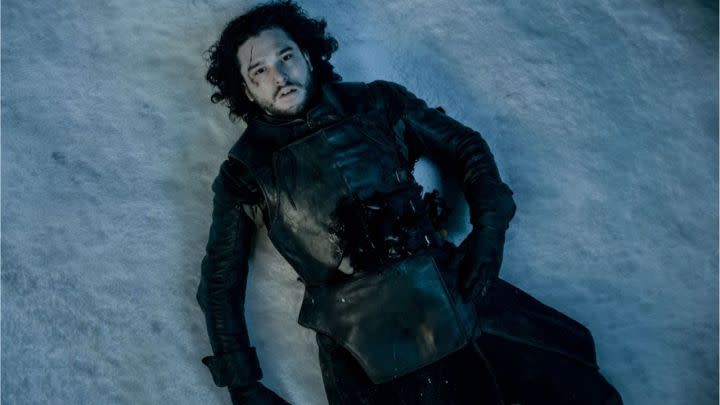
Season 5 of Game of Thrones is the earliest indication that the powers behind the show didn’t necessarily know what they were doing. The season marks a major departure from the books, with storylines shortened and mixed in an effort to keep things more streamlined. Major plots include Daenerys ruling Meereen with disastrous results, Jon becoming Lord Commander at Castle Black, Arya beginning her training in Braavos, Sansa getting married to Ramsay Snow, Tyrion journeying to Essos to meet Dany, and Cersei and Jaime dealing with the Sparrows in the aftermath of Tywin’s death.
Much of what makes season 5 seem weak is how much it pales in comparison to its masterful predecessor. The writing is weak, especially concerning the stories at Castle Black, and certain narrative choices come across as pure shock value rather than genuine attempts to progress the larger story. Season 5 does include a few incredible episodes, most notably Hardhome, and a powerful season finale. Still, the season is overall uneven at best, and includes some of the show’s most gratuitous and needless plots, putting into question the writers’ abilities to deliver a satisfying conclusion.
5. Season 1 (2011)
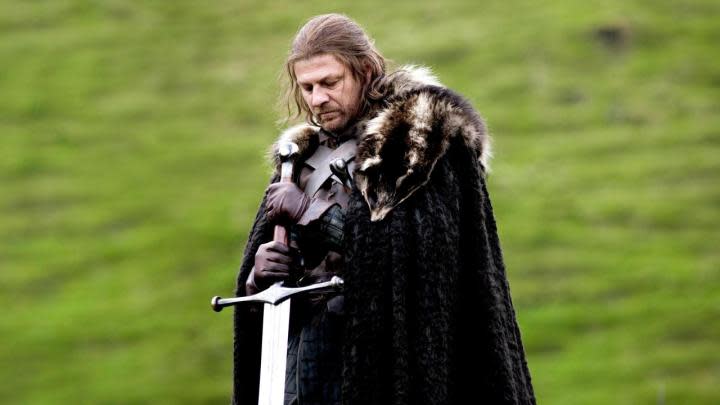
“You win, or you die,” the tagline for Game of Thrones season 1 read, and boy, was it right. Fantasy icon and perennial victim Sean Bean starred as Eddard Stark, the noble head of House Stark, who abandons his spot as Warden of the North to serve as Hand of the King for his longtime friend, Robert Baratheon. Arriving at the capital city of King’s Landing, Ned becomes involved in a dangerous game of politics and treason.
Season 1 of Game of Thrones stands out because it’s the only one with a clear protagonist. While the show would become a true ensemble as it progressed, season 1 is firmly centered around Ned, with Bean embodying the character’s heroic and honorable qualities to perfection. In addition, this season is Game of Thrones at its most contained and intimate, favoring politics and machinations over ambitious fantasy concepts — Daenerys’ dragons aren’t even hatched yet.
However, what it lacks in scope, it makes up for in narrative punch, clever writing, and a subversive approach to the usually clearcut fantasy genre. Season 1 of Game of Thrones laid the basis for everything that followed, allowing the show to grow into one of the most popular in television and doing most of the heavy lifting to introduce the complicated, yet fascinating World of Ice and Fire.
4. Season 6 (2016)
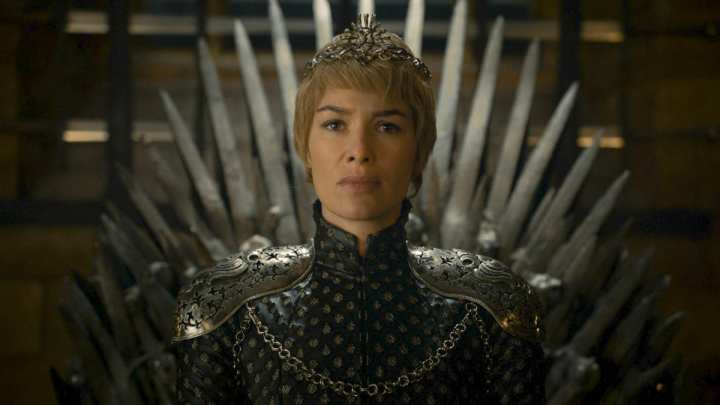
In more ways than one, season 6 is the ending of Game of Thrones‘ golden age. The plot sees Cersei plotting her revenge against the Sparrows, who are becoming more dangerous by the second. Meanwhile, Jon and Sansa rally the Northern houses against Ramsay, Tyrion struggles to rule Meereen while Daenerys is kidnapped by the Dothraki, Arya continues her training in the House of Black and White, and Bran begins his journey to becoming the Three-Eyed Raven.
Although far more uneven than its predecessors, season 6 of Game of Thrones soars on the strength of some of the show’s best efforts. Episodes like The Door, Blood of My Blood, Battle of the Bastards, and The Winds of Winter rank among the best of the 21st century, let alone Game of Thrones. Ramin Djawadi’s score also reaches new heights this season, especially during the final episode, where the now-iconic tune Light of the Seven plays during the explosion of the Great Sept of Baelor.
Season 6 is Game of Thrones in overdrive, delivering one showstopping sequence after another without losing momentum. It expertly blends fan service and character development, setting the stage for an epic showdown that, sadly, would never come.
3. Season 3 (2013)
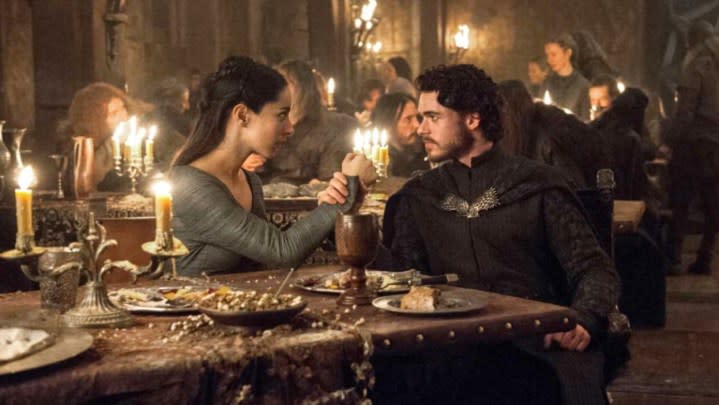
Season 3 of Game of Thrones lives in perpetual infamy. It features the ending of the War of the Five Kings and the unexpected marriage between Sansa and Tyrion, which is orchestrated by Tywin. Jaime bonds with Brienne on his way back to King’s Landing, Jon spends more time with the Free Folk, Arya and the Hound form an unlikely relationship during their travels, and Daenerys slowly amasses an army of her own.
Solid and narratively coherent as it builds up to a harrowing finale, season 3 of Game of Thrones is riveting television. The duos of Jaime and Brienne and Arya and the Hound are surprisingly heartwarming, while Dany’s increasing influence in Essos cements her as a modern pop culture icon.
However, it’s the notorious and outright traumatizing Red Wedding that dominates any conversation about season 3. The event marked a turning point for Game of Thrones, as it killed off multiple main characters in a shocking and brutal sequence that challenged audiences’ expectations and changed television for good. Season 3 did a lot of things right, but in many ways, its legacy amounts to The Rains of Castamere, an episode that ranks among television’s all-time greatest ever produced.
2. Season 2 (2012)
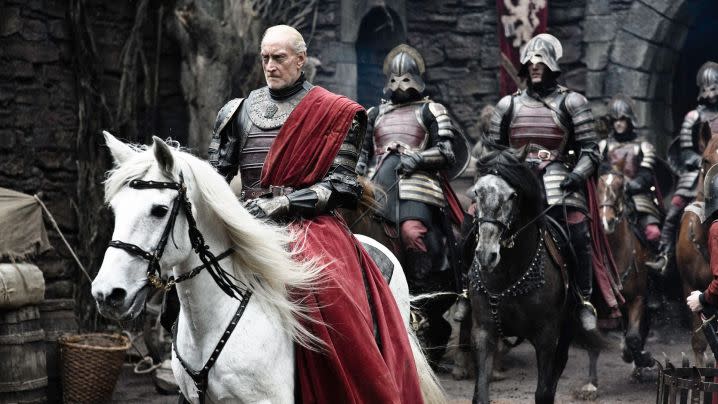
Following the game-changing end of season 1, Game of Thrones season 2 sets each character off in new and exciting directions. Tyrion serves as Hand of the King to Joffrey, attempting to prepare the city’s defenses for Stannis’ upcoming attack while dealing with Cersei’s machinations. Robb continues his war against the Lannisters, Jon ventures beyond the Wall, Arya travels with the Brotherhood without Banners, Theon takes over Winterfell, and Daenerys journeys to Qarth with her newly hatched dragons and what’s left of her khalasar.
Season 2 of Game of Thrones greatly benefits from incredible dialogue, perhaps the best in the show’s eight years. Tyrion and Cersei share some of the best interactions in the show’s history, which are elevated even further by Peter Dinklage and Lena Headey’s one-of-a-kind chemistry. Similarly, Tywin and Arya form an unlikely, yet mesmerizing duo, with Charles Dance and Maisie Williams delivering some of the finest work on the show.
The season leads to the near-perfect episode Blackwater, which features one of the show’s most ambitious battle sequences. Overall, season 2 of Game of Thrones is cohesive and satisfying, yet still shocking and unpredictable. It successfully expands the show’s lore, introduces new characters, and plants seeds that would blossom for years to come.
1. Season 4 (2014)

Game of Thrones undoubtedly peaked with season 4. The show’s fourth year featured massive storylines, from Joffrey’s death at the Purple Wedding to Tyrion’s subsequent trial for his apparent murder. Sansa finally escapes King’s Landing, Arya continues her journeys with the Hound, Jon prepares Castle Black against the Free Folk’s upcoming attack, and Daenerys takes over Meereen, abolishing slavery and sending Essos into political chaos and societal unrest.
Season 4 sees every aspect of Game of Thrones operating at peak capacity. Every element, from the writing to the acting, directing, and staging, is spectacular, and the actors receive some of their strongest material. The season’s MVP is undoubtedly Tyrion, with Dinklage delivering arguably his finest performance in the show during the seminal episode The Laws of Gods and Men. However, many other actors shine, including the new Mr. Fantastic, Pedro Pascal, whose Oberyn Martell is a highlight of the season.
Headey, Harington, Clarke, and Dance are also noteworthy, as are Gwendolyn Christie and the ever-underrated Natalie Dormer. Season 4 of Game of Thrones is the closest thing to perfection that we’ll ever see on our television screens, offering a daring, challenging, and utterly unforgettable narrative that cemented the show as a modern entertainment masterpiece — up until that point, anyway.
